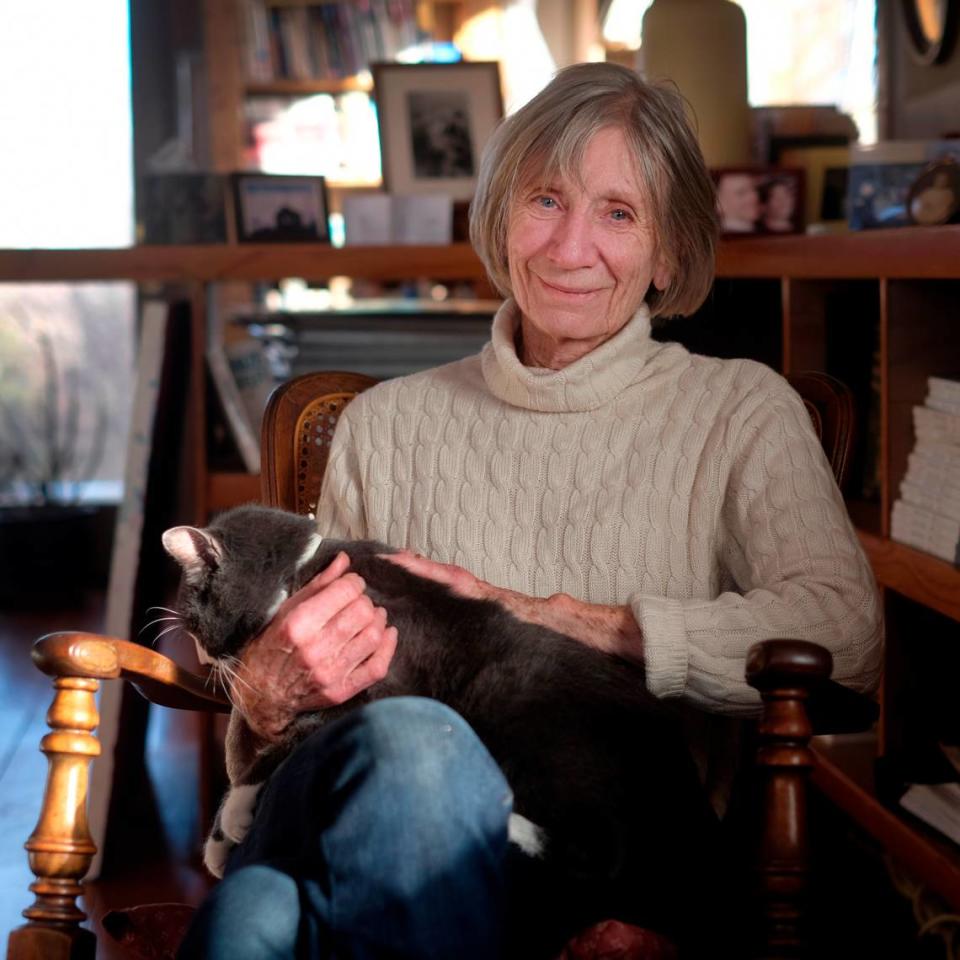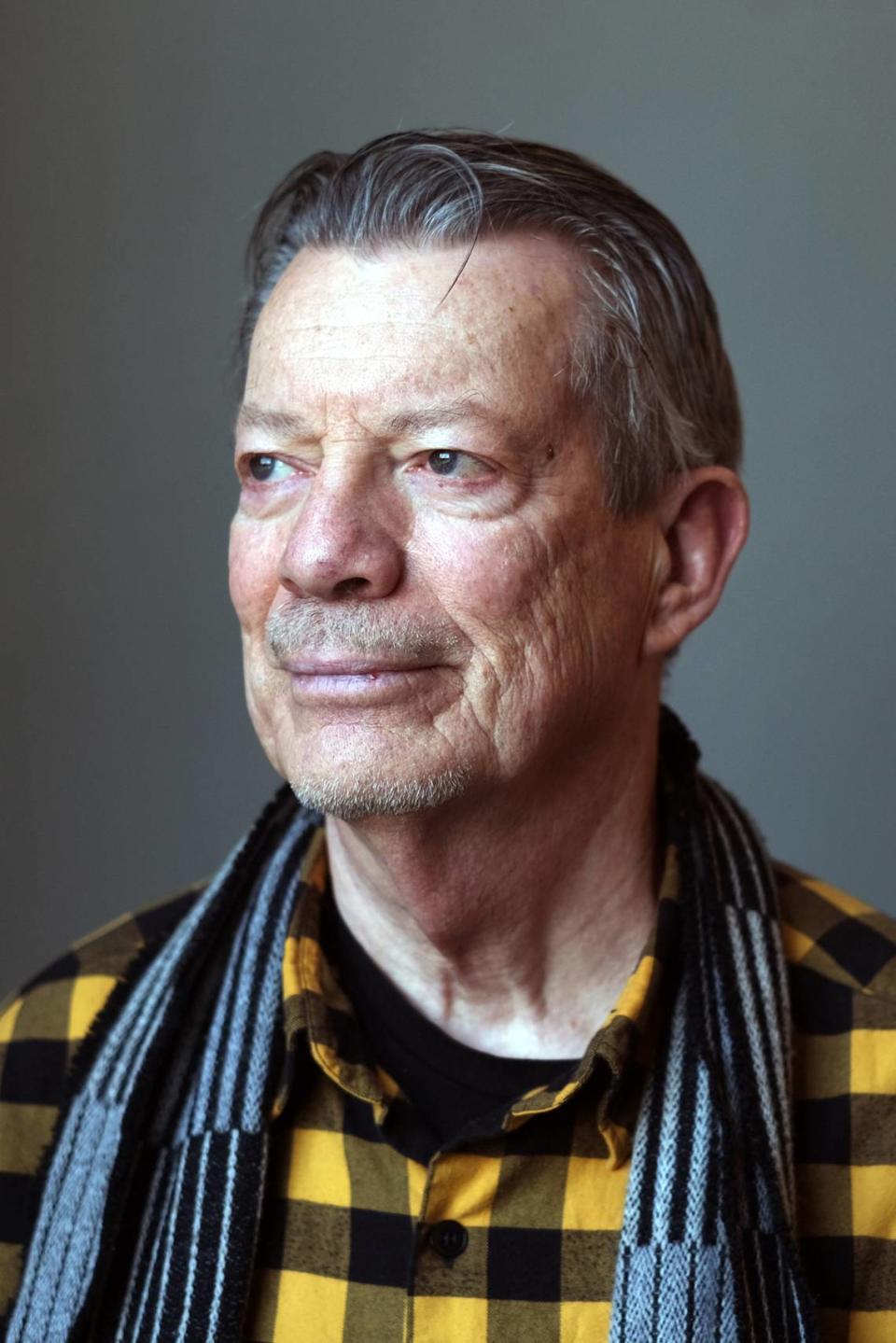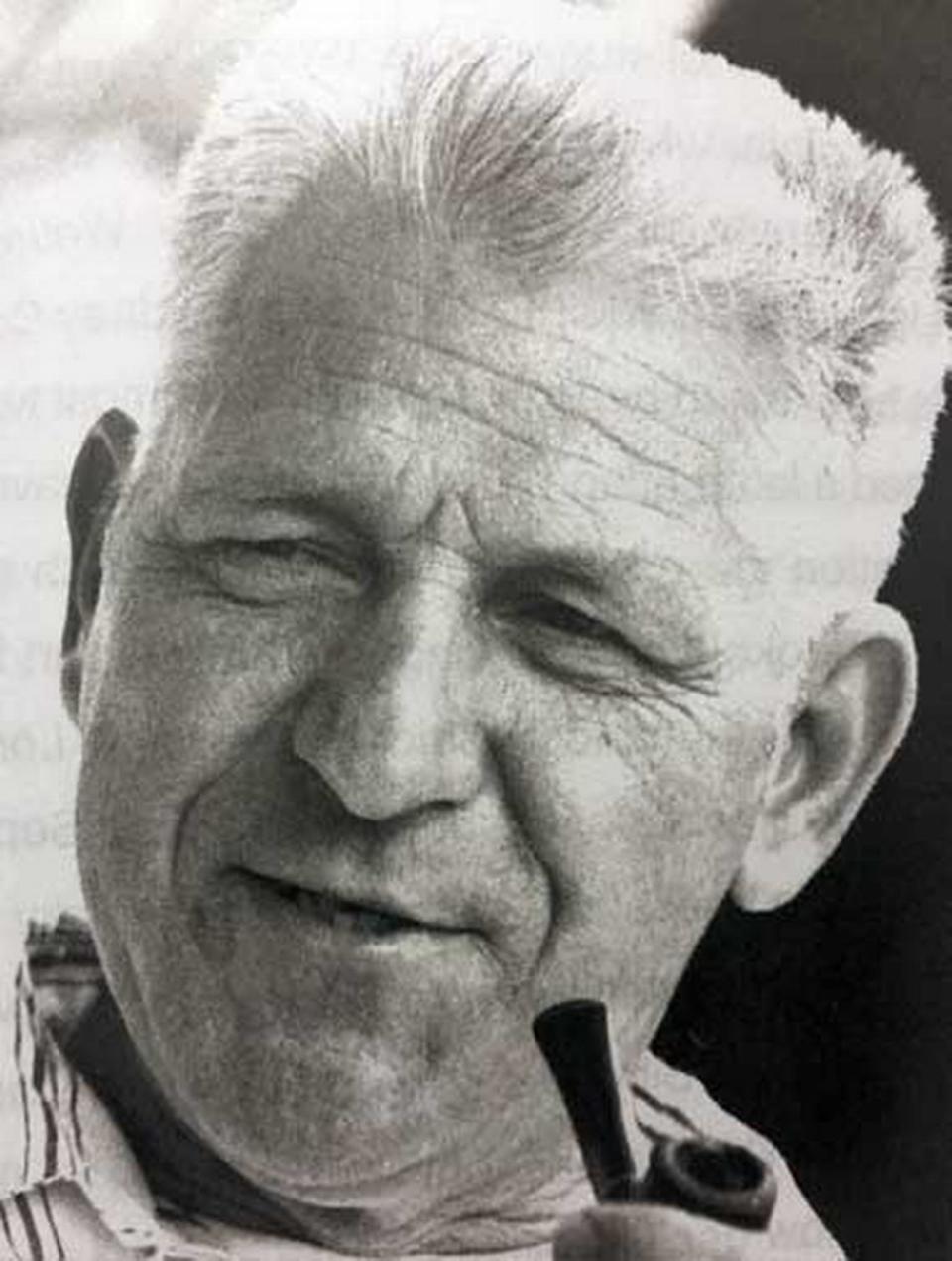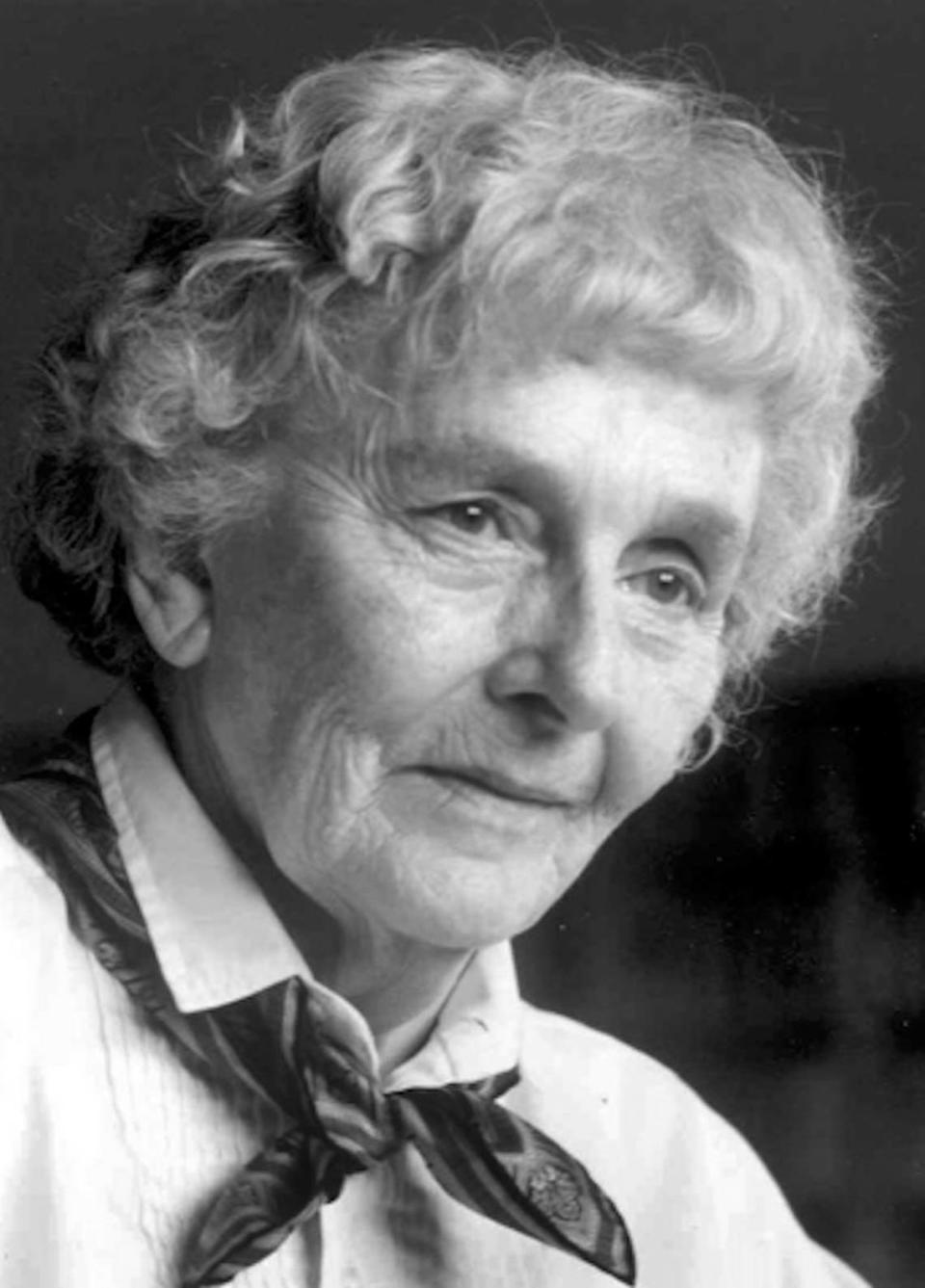Playwrights, essayists, artists: Meet the 2024 inductees to the KY Writers Hall of Fame
- Oops!Something went wrong.Please try again later.
- Oops!Something went wrong.Please try again later.
From a writer who was one of the first chroniclers of the AIDS epidemic to one of American drama’s leading lights, this year’s inductees to the Kentucky Writers’ Hall of Fame continue to show this state’s literary breadth and depth.
“The Hall of Fame, created in 2012 by the Carnegie Center and the Kentucky Arts Council, is an effort to honor Kentucky’s outstanding writers of the present and past and to educate Kentuckians about their state’s rich literary tradition,” said Tom Eblen of the Carnegie Center, who manages the Hall of Fame process.
“These six inductees show the breadth and diversity of Kentucky writers, and we are excited that the three living inductees plan to attend the ceremony.”
The ceremony will be held March 25 at 7 p.m. at the Kentucky Theatre.
This year’s inductees are:

Mary Ann Taylor Hall was born Oct. 17, 1937, in Chicago, but spent much of her childhood in Florida. She attended the University of Florida and earned a masters in English at Columbia University. She taught at Auburn University, Miami of Ohio and the University of Puerto Rico before coming to the University of Kentucky in 1977. She met and married her creative writing colleague, James Baker Hall, in 1982.
Taylor-Hall’s most famous novel is “Come and Go, Molly Snow,” about a single mother and musician. She has also published a book of short stories and three volumes of poetry. Her poetry and short fiction has been published in the Paris Review, the Sewanee Review and the Kenyon Review.

▪ Fenton Johnson left Kentucky at 17 and considers himself an exile, despite that fact that so much of his work reflects his family and childhood in Nelson County.
He went to California and stayed there after realizing that Kentucky of the 1970s had little space for a gay artist. Like several other Kentucky writers, he won a Wallace Stegner Fellowship at Stanford and later earned an MFA in creative writing from the Iowa Writers Workshop.
He wrote early novels about his family and Kentucky, including “Crossing the River,” “Scissors, Paper, Rock,” and “The Man Who Loved Birds.” He was also a staff writer for The New York Times Magazine, helping that organization change the way it covered the AIDS crisis with a groundbreaking essay about the death of his partner from the disease.
“Scissors, Paper, Rock,” about a young man with HIV who comes home to rural Kentucky, was recently chosen by Kentucky Humanities as the 2024 Kentucky Reads selection.
Johnson has also written two non-fiction books, “Keeping Faith: A Skeptic’s Journey” and “At the Center of All Beauty: Solitude and the Creative Life.”

George C. Wolfe is best known for his director’s role in such famous plays as “Angels in America” and “Topdog/Underdog” (written by fellow Kentuckian Suzan-Lori Parks. But he’s also earned four Tony nominations for writing and won a 1992 Drama Desk writing award for his hit Broadway musical “Jelly’s Last Jam,” about musician Jelly Roll Morton.
He’s also directed several films, including the recent “Rustin,” about civil rights leader Bayard Rustin and produced by Barack and Michelle Obama; and “Ma Rainey’s Black Bottom.”
Wolfe was born in Frankfort on Sept. 23, 1954; he attended Kentucky State University’s segregated Rosenwald Laboratory School. His first trip to New York at age 12 tripped his love of the theater. He graduated from Frankfort High School, according to Eblen, where he was active in theater, wrote for the school newspaper and literary journal and was the marching band’s first Black drum major.
Wolfe was artistic director of the New York Shakespeare Festival and The Public Theater from 1993 to 2004. Wolfe was inducted into the American Theater Hall of Fame in 2013. He also serves as creative director for the Center for Civil & Human Rights in Atlanta.
Hall, Johnson and Wolfe are planning to attend the March 25 ceremony.
The posthumous nominees are:

Billy C. Clark was born in near Catlettsburg in 1928. He did a variety of odds jobs in Eastern Kentucky before joining the Army. He went to the University of Kentucky on the GI Bill in 1952, but ran out of money, and so started writing books.
He sold five books in five years, including “Song of the River,” “The Trail of the Hunter’s Horn,” and “A Long Row to Hoe; The Life of a Kentucky Riverboy,” his autobiography. Time Magazine called it “as authentically American as Huckleberry Finn.”
He returned to UK, finished his degree and became a writer in residence there. He later taught at UK’s Somerset Community College, then moved to Farmville, Va., where he taught at Longwood College and Hampden Sydney. In the 1990s and 2000s, he wrote seven more books. He died in 2009 at the age of 80.

Paul Brett Johnson was born in the Knott Community of Mousie in 1947. He started his professional life as a visual artist before becoming acclaimed for writing and illustrating children’s books. He wrote his own and illustrated those of other Kentucky authors, including James Still and George Ella Lyon.
In 1993, he released “The Cow Who Wouldn’t Come Down,” about Gertrude the flying cow. It made“best books ”lists of the American Booksellers Association, the New York Public Library and School Library Journal. Other books included “The Pig Who Ran a Red Light” and “The Goose Who Went Off in a Huff.”
Lexington Children’s Theatre created two productions based on Johnson’s books: “Old Dry Frye” and
“Cows Don’t Fly and Other Known Facts.” Johnson’s books earned the California Young Reader Medal, the North Carolina Junior Book Award, as well as honors from Smithsonian magazine and the Kentucky Association of School Librarians. He died in 2011.

Mary Lee Settle is better known as a West Virginia writer because of her Charleston birthplace and her epic historical series “The Beulah Quintet.” But she spent her early years in Pineville, Ky., where he father worked in the coal industry before moving to to Florida and then back to West Virginia. She attended Sweet Briar College, but later moved to England in 1939, where she volunteered for Britain’s Women’s Auxiliary Air Force. She later wrote “All the Brave Promises” about the experience.
Settle wrote 23 books in all, including “Blood Tie,” which won the National Book Award in 1978. Two years later, she founded the PEN/Faulkner Award for Fiction. She lived in Turkey, and traveled frequently for her non-fiction books, including “Turkish Reflections” and “Spanish Recognitions.” Settle taught at Bard College, the Iowa Writers’ Workshop and the University of Virginia. She died in 2005 at age 87.

